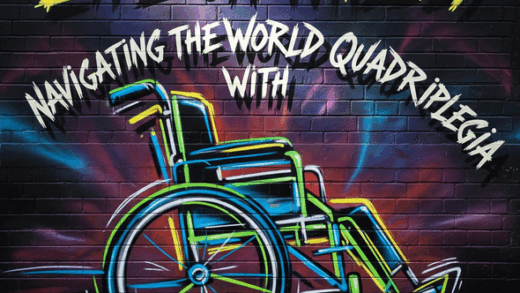Suicide. While a few people with paralysis claim to have never considered it, most people who’ve had a spinal cord injury, if they’re being honest with themselves, have. And it’s no wonder. Transitioning into a body that’s paralyzed is one of the most difficult things in the world to do. And society’s misconceptions, like the film Me Before You, surely don’t help.
But for many of these people, their reasons for wanting to die are likely different than you think. It’s not the lessened mobility or the diminished sensation, it’s the chronic pain, also known as neuropathic pain. This is an unstoppable, burning pain that many people spinal cord injuries experience due to spinal cord/brain miscommunication. And the worst part, doctors have no clue how to make it go away completely.
But we are not here to explain or shame suicide. We are here to help. While it’s normal to become depressed after a paralyzing injury, becoming suicidal is not. If you’re wanting to move into a better place mentally, please read our advice below.
Consult a Rehab Counselor
If you’re newly injured and having thoughts of suicide, take advantage of the inpatient rehab setting you may be in and speak with one of the rehab counselors there. They have years of experience and even though they may not fully understand what it’s like to be you, unloading what you’re feeling is incredibly important, especially when someone who understands is listening.
How Was Your Disposition Before?
Remember, people who are able-bodied commit suicide too. People with SCI don’t hold a patent on suicide. Think back to how you were before your injury. Pre-SCI, did you have suicidal thoughts or poor coping skills? If so, you could have a chemical imbalance and should be evaluated by a psychiatrist. If you didn’t have suicidal thoughts pre-injury, than it’s most likely related to your current situation which means seeing a therapist is still good so you can talk it out.
Recover Faster by Being Aware of 5 Stages of Grief
We won’t go into each stage deeply, but there are the five stages of grief that people who’ve lost something go through. Whether you’ve lost someone or you’ve lost physical abilities, going through loss is one of the hardest things to do. The first stage of grief is the Denial stage, where you simply can’t accept the current situation.
Stage two is the Anger/resentment stage. This is when you constantly question why you had your accident, and you may get angry towards others in the process. Stage three is the Bargaining stage, where many people will try to make a bargain with God to get better.
The fourth stage is the Depression stage, where you see that nothing will change and you lose hope. And the fifth and final stage is the stage of Acceptance, where you’re ready finally for whatever comes next. This is the stage that every person with a spinal cord injury hopes to get to because it’s when you begin to heal and move forward.
Force Yourself to Try New Things & Engage in Life
Since there are a lot of things you can no longer do, it’s vital you try to engage in meaningful activity once you’re discharged from the hospital. Whether it’s a new hobby, an adaptive sport, school or a new profession, challenging your brain and getting your adrenaline levels going can help battle suicidal thoughts in a huge way.
Accept That it Won’t Be Easy
What ever you do, don’t beat yourself up for feeling suicidal. While some quadriplegics and paraplegics transition without much trouble, others have a very hard time. It really is a mixed bag depending on the person’s personality. An article by Lynn Dorr, a C4-5 quadriplegic from Minnesota who had suicidal thoughts after her injury (but was able to keep them at bay because of her children), is a great read. You can read her article here: Me Before You – Suicide After Spinal Cord Injury
Increase Your Serotonin Levels
If you want to try to improve your mood naturally, you can try increasing the serotonin levels in your brain. It has been proven that elevated serotonin levels can help elevate the mood. To increase your brain’s serotonin levels, you can do so by immersing yourself in bright light/sunlight, exercising more and even eating foods with high levels of tryptophan, like chickpeas and turkey.
Suicide is happening. Don’t ignore the warning signs within you. Life may be different, but it can still be fulfilling. And if you need help today, please consider contacting any of the organizations listed below. Many have 24 hour help.
For those who’ve been suicidal with a SCI, how did you move past those dark times
Written by Tiffiny Carlson | August 22, 2017




